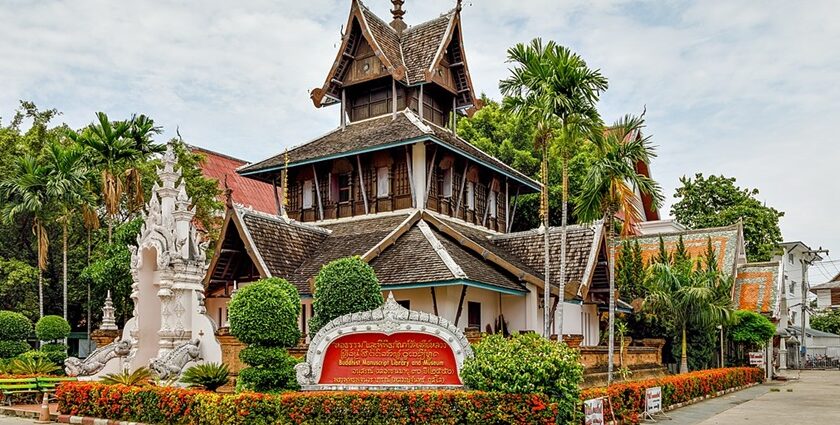Thailand, also known as The Land of Smiles, is a colourful and diverse country that blends rich culture, spectacular nature and contemporary architecture. Whether visiting temples, sunbathing on white sand beaches or revelling in its nightlife, Thailand is something for all travellers. With this Thailand travel guide, tick this destination off your bucket list. It is well-known for hospitality, cuisine and affordability, making it a loved destination for millions around the world. From the busy streets of Bangkok to the tranquil islands of Krabi, Thailand is full of memorable moments.
Location
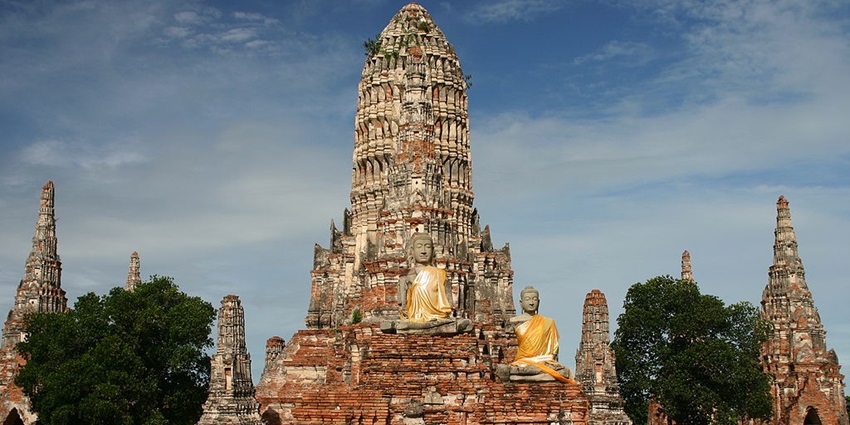
Photo: Evilarry / Wikimedia Commons
Thailand lies in Southeast Asia, surrounded by Myanmar to the west and north. It has Laos to the north and east, Cambodia to the southeast and Malaysia to the south. The country is bounded by the Gulf of Thailand to the southeast and the Andaman Sea to the southwest, and it boasts miles of glorious beaches.
Suggested Read: Nightlife In Pattaya For Singles
How To Reach
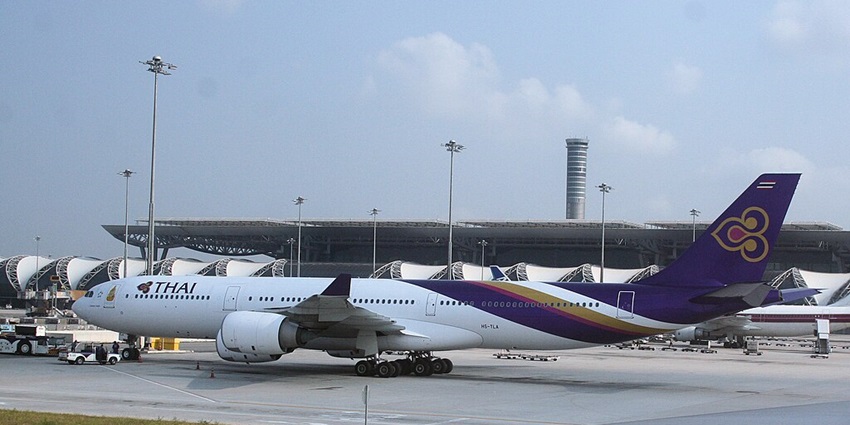
Photo: Mike Powell / Wikimedia Commons
By Air: The main gateway is Suvarnabhumi Airport (BKK) in Bangkok, which is easily accessible from major cities around the world. Phuket, Chiang Mai and Krabi all have international airports.
By Road: Thailand can be accessed by road from neighbouring countries such as Malaysia, Cambodia, and Laos through a number of border crossings.
By Water: Ferries and cruises link Thailand to neighbouring countries such as Malaysia and Singapore.
Thailand Travel Guide: Best Places To Visit
Explore historical Buddhist temples and beautiful beaches with this Thailand travel guide:
1. Chiang Mai
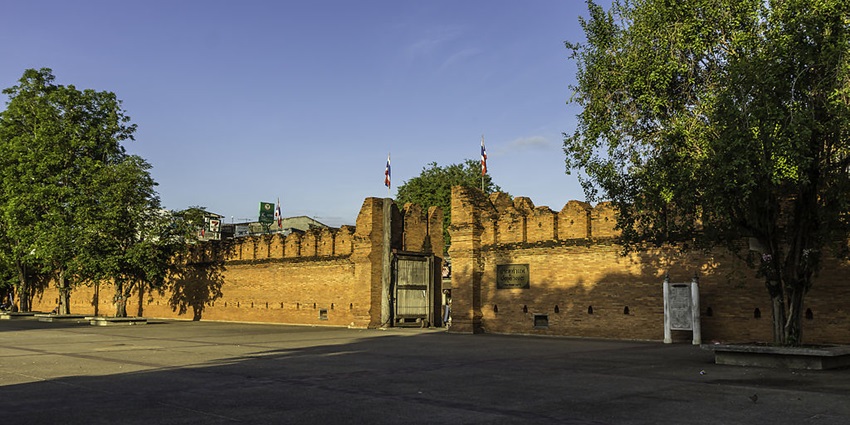
Photo: Stefan Fussan / Wikimedia Commons
Chiang Mai, located in the mountainous North of Thailand, is an idyllic destination for culture and nature lovers. The cultural capital of Thailand is home to more than 300 old temples such as Wat Phra Singh and Wat Chedi Luang. The old town of the city is enclosed by old walls and moats, which add to the ambience. Trekkers can go trekking in Doi Inthanon National Park or visit moral elephant reserves like Elephant Nature Park. If you want to experience the Yi Peng Lantern Festival, thousands of lanterns will shine overhead. Chiang Mai also has markets such as the Sunday Walking Street.
Location: Northern Thailand
Best Time To Visit: November to February
Suggested Read: Best Food In Thailand
2. Bangkok

Photo: Nik Cyclist / Wikimedia Commons
Bangkok is the heart of Thailand, where traditional values are blended with a new urbanity. Some of the nation’s most famous buildings are in the city, such as the Grand Palace and Wat Phra Kaew. These are complex architectural structures displaying religious significance. If you want to see how the locals live, take a ride on the Chao Phraya River or visit floating markets such as Damnoen Saduak. Here vendors sell local produce and crafts from wooden dhows. The street food stalls serve Thai delicacies like Pad Thai and Mango Sticky Rice. Bangkok’s nightlife includes rooftop bars to night markets.
Location: Central Thailand
Best Time To Visit: November to February
3. Phuket
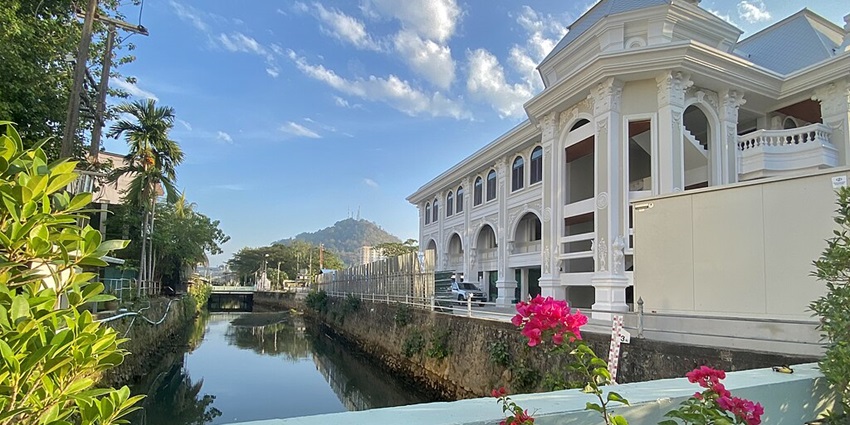
Photo: Sharon Hahn Darlin / Wikimedia Commons
Phuket is the biggest island in Thailand and is famous for its gorgeous beaches, posh resorts and nightlife. The island’s highlight is Patong Beach, which has a lively vibe, water sports, and restaurants. If you want a quieter beach, visit Kata or Nai Harn. Phuket’s heritage is also evident in its Old Town, where Sino-Portuguese buildings and street markets offer a glimpse into its past. Experience the sights from the water by taking a boat trip to iconic destinations such as Phi Phi Islands or Phang Nga Bay.
Location: Southern Thailand
Best Time To Visit: November to April
Suggested Read: Hua Hin Thailand Nightlife
4. Krabi
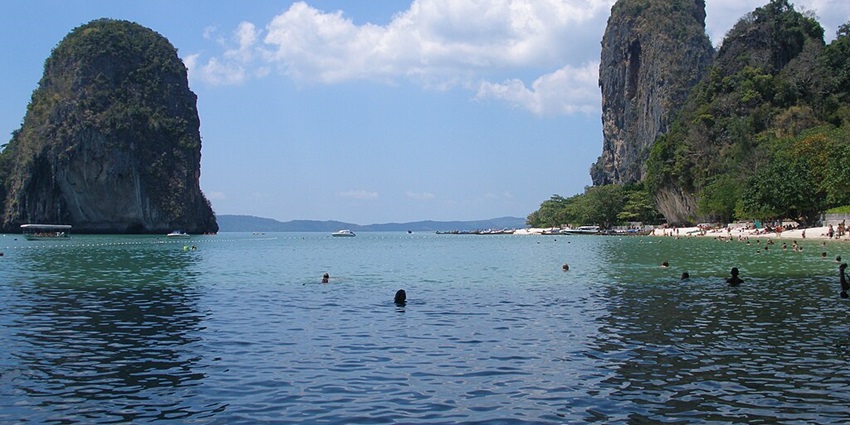
Photo: Vyacheslav Argenberg / Wikimedia Commons
Krabi is a coastal wonderland with limestone cliffs, clean beaches and green seas. Railay Beach is a must-visit for rock climbers and Phra Nang Cave Beach has breathtaking views and a little bit of culture. Island hopping from Krabi is a must, with tours to Koh Phi Phi, Koh Hong and Bamboo Island all providing unforgettable excursions. The Emerald Pool and Hot Springs offer an ideal place to unwind while surrounded by nature. The Tiger Cave Temple offers stunning panoramic views once you scale its 1,237 steps. Krabi’s natural beauty and laid-back vibe make it a good place for adventurers and travellers alike.
Location: Southern Thailand
Best Time To Visit: November to March
5. Koh Samui
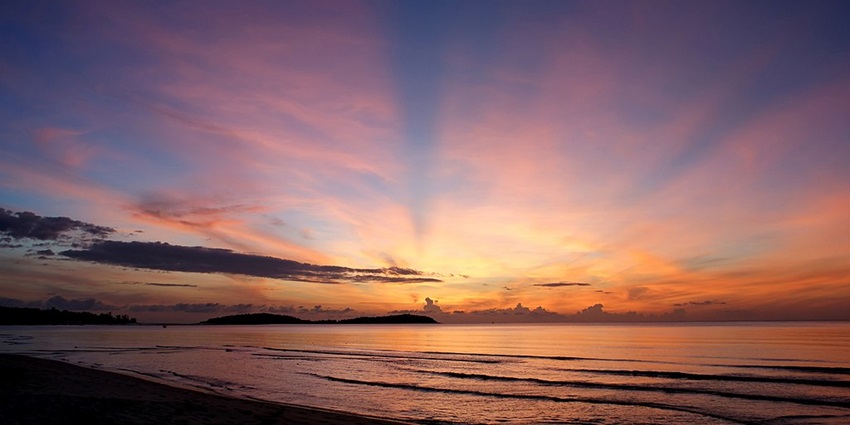
Photo: Lisa Tancsics / Wikimedia Commons
Koh Samui is a tropical haven that combines luxury, adventure and culture. Its beaches, including Chaweng and Lamai, are excellent for sunbathing, swimming and water activities. Kayaking and snorkelling in limestone islands and clear waters are recommended at Ang Thong National Marine Park. Koh Samui also boasts attractions such as the Big Buddha and the Secret Buddha Garden, all nestled in hills. Yoga retreats and top spas dominate the island’s wellness tourism. Koh Samui’s natural beauty and nightlife will leave a lasting impression on honeymooners or friends travelling together.
Location: Gulf of Thailand
Best Time To Visit: February to June
Suggested Read: Bungee Jumping Thailand Phuket
6. Pattaya
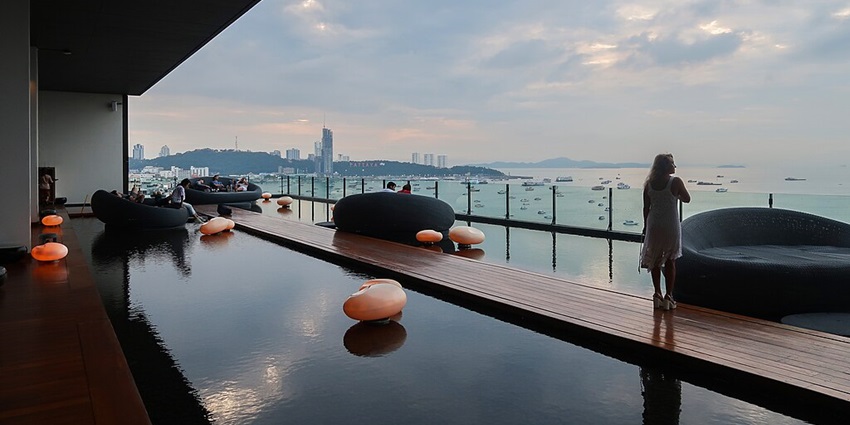
Photo: Wpcpey / Wikimedia Commons
Pattaya is a multipurpose place that caters for entertainment, recreation and culture. The Sanctuary of Truth, a massive wooden monument completely made by hand, represents Thai culture and spirituality. Jomtien Beach is a quiet alternative to the busy Pattaya Beach and is perfect for families and couples. Nong Nooch Tropical Garden offers lush green gardens and Thai cultural displays. Parasailing, jet skiing and zip-lining can all be enjoyed by the adventurous tourists. Pattaya’s Walking Street is renowned for its nightlife and its many bars, clubs and shows for those looking to party hard.
Location: Eastern Thailand
Best Time To Visit: November to February
Where To Eat
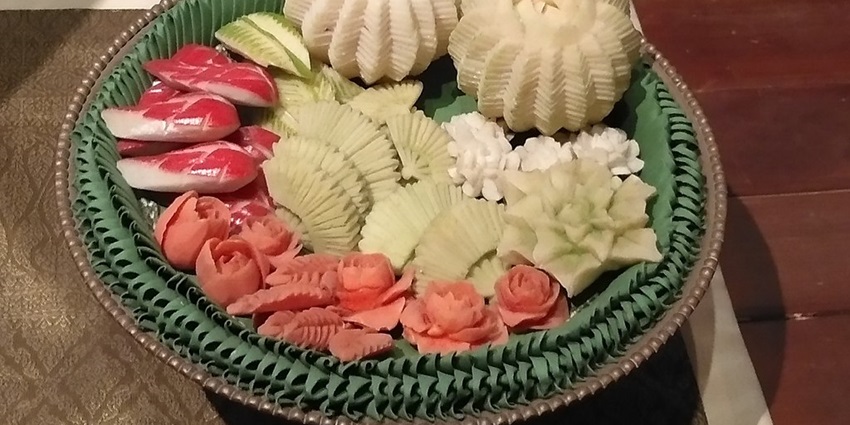
Photo: Tris_T7 / Wikimedia Commons
Thailand’s food is as geographically diverse as it is exotic and has a pleasing array of flavours to satisfy all tastes. There are no better places to enjoy Pad Thai, Som Tam (papaya salad) and grilled skewers than Bangkok’s Chinatown (Yaowarat) and Chiang Mai’s Night Bazaar. If you’re a seafood lover, go to Phuket’s Laem Hin Pier or Bang Saen Beach for fresh fish, prawns and crab. Bangkok has Michelin star restaurants, such as Gaggan Anand, which serve fresh Thai fusion. Restaurants like May Veggie Home in Bangkok or Dishes in Pai will also cater to vegetarian/vegan visitors. You must also enjoy Thailand’s tropical fruits, such as durian, rambutan and mango.
Suggested Read: The Best Party Places In Bangkok For A Thrilling Night Out Experience
Where To Stay

Photo: Nadiaweb83 / Wikimedia Commons / Image For Representation Only
From inexpensive hostels to beachfront hotels, Thailand’s accommodations range from quaint to the finest. In Bangkok, riverside hotels such as The Peninsula Bangkok are both luxurious and breathtaking. Chiang Mai is best visited for boutique resorts such as Rachamankha or jungle lodges. If you’re heading to Phuket, try The Nai Harn for a nice beachside stay or Patong’s affordable guesthouses. Koh Phangan’s hostels are a popular destination for backpackers, particularly during the Full Moon Party. Treehouses in Pai or floating bungalows in Kanchanaburi offer memorable stays. Visitors may also book Airbnb or homestays for true Thai hospitality.
Other Factors To Consider
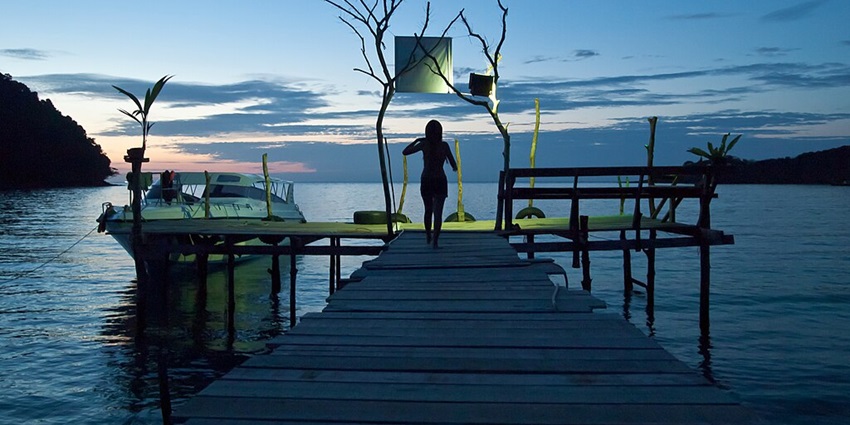
Photo: Vyacheslav Argenberg / Wikimedia Commons
Tips For Travellers
- The Thai Baht is the local currency. Carry cash for street shopping.
- Learn a few Thai phrases like “Sawasdee” (Hello) and “Khop Khun” (Thank you) to connect with locals.
- Tuk-tuks and Grab (ride-hailing app) are convenient ways to get around cities.
- Stay hydrated and use mosquito repellent to avoid bites.
Suggested Read: Best Food In Bangkok With Top Restaurants To Visit For Amazing Culinary Delights
Thailand is an absolute paradise for anyone looking for adventure, relaxation or cultural immersion. Its amazing scenery, friendly people and endless activities make it an ideal place to visit again and again. Now that you’ve read through this Thailand travel guide, you are prepared to make a journey that will last a lifetime. So, pack your luggage and plan your journey to Thailand with TripXL now.
Cover Photo: CEphoto, Uwe Aranas / Wikimedia Commons


 WhatsApp
WhatsApp
 Twitter
Twitter
